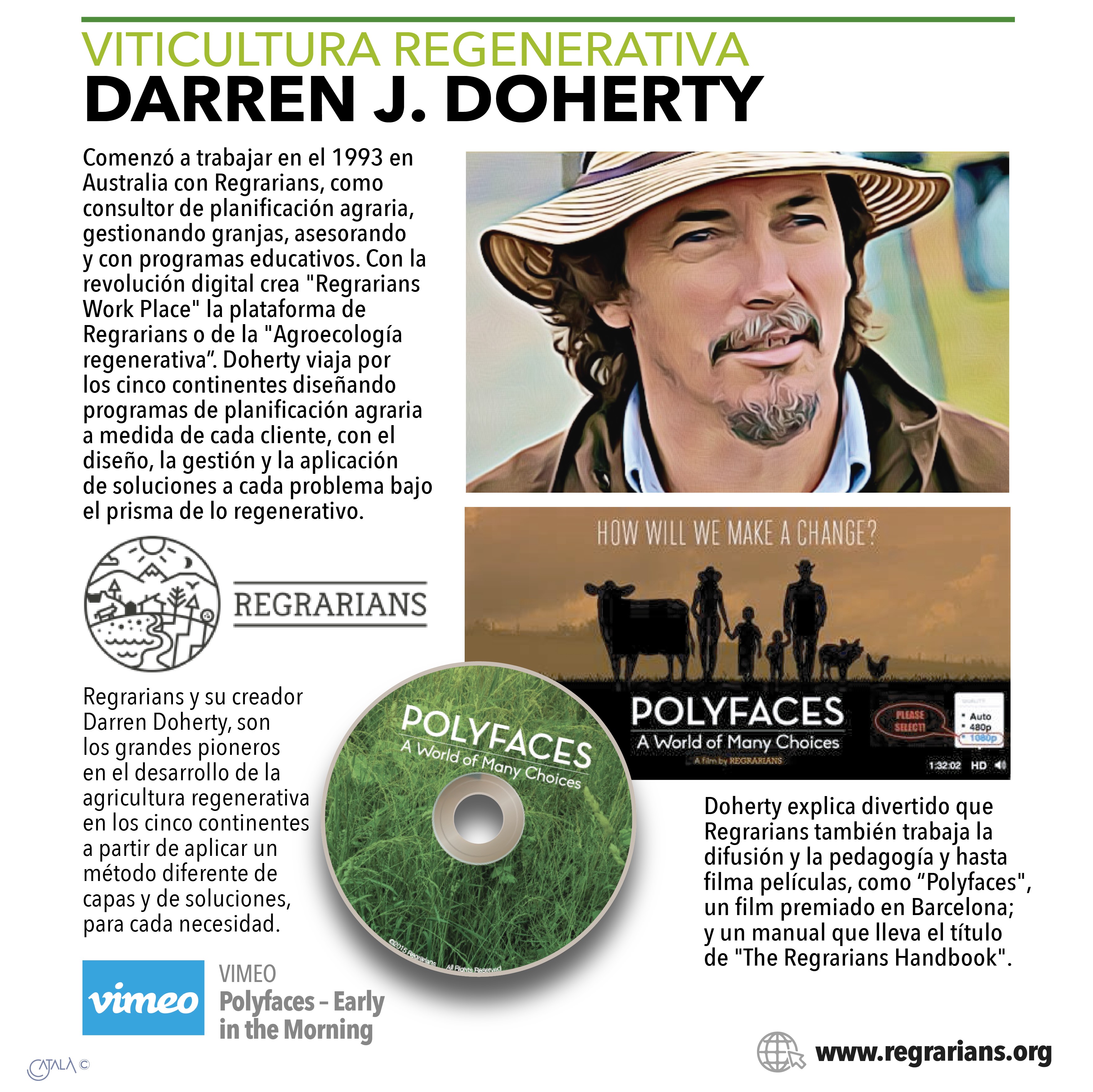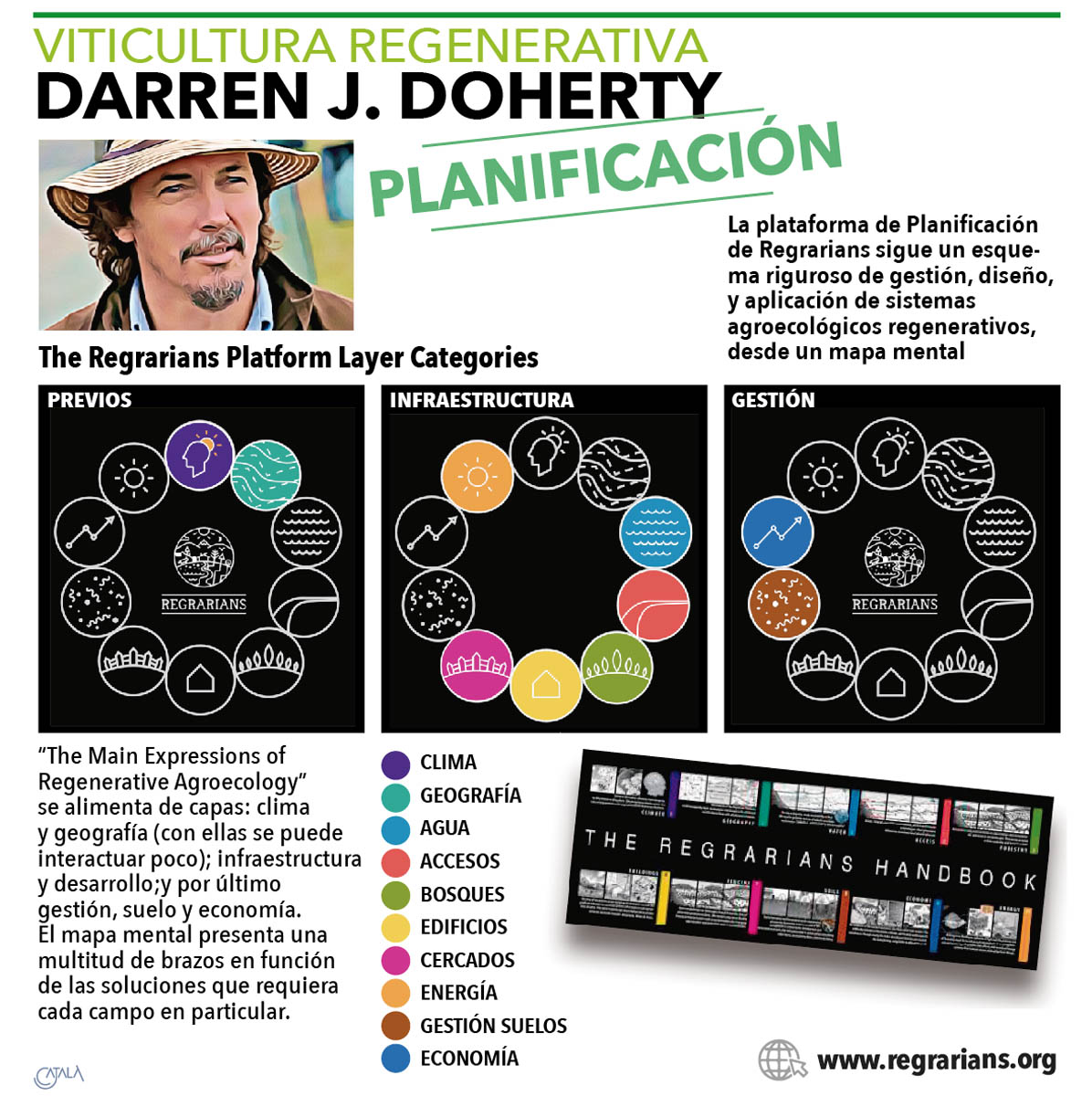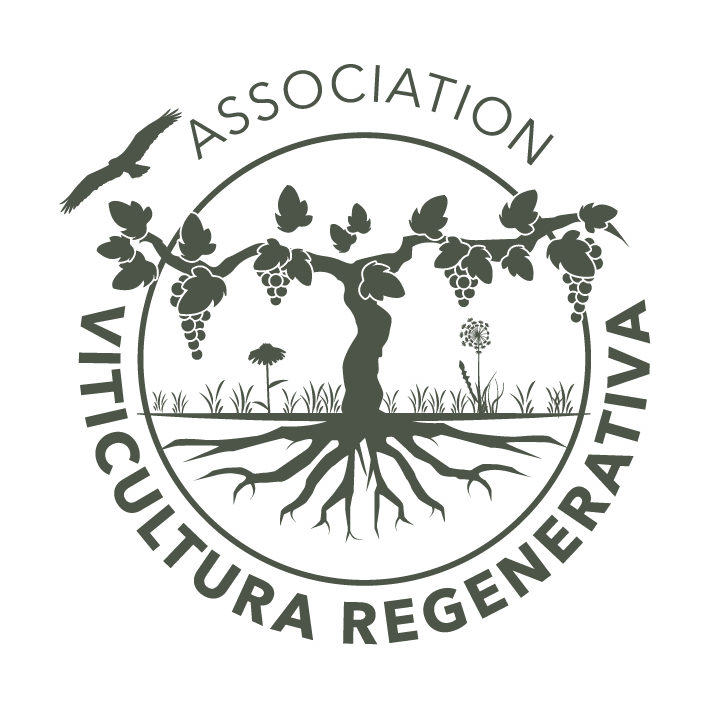Darren Doherty: “We have more than 4.500 members from over 85 countries who have joined the regenerative agroecology movement.”
Darren J. Doherty, an Australian farmer, founder of Regrarians, international consultant and trainer in regenerative agriculture, participated in the 1st Regenerative Viticulture Conference held in Vilafranca del Penedès this past June. Below you'll find a summary of his talk.
Starting in 1993, Darren Doherty began working as a farm planning consultant, and over the years, he managed farms, advised others, and developed educational programmes. When the digital revolution happened, he created Regrarians Workspace, a space that brings together over 4500 members from over 85 countries who practice all forms of what we might describe as regenerative agriculture or regenerative agroecology.

Doherty travels the world developing farm planning projects tailored to the needs of each individual client, where he takes a regenerative approach to the design, management, and implementation of solutions to each problem. Doherty light-heartedly explained how Regrarians also works on getting the word out, on training and education, and even makes films, including Polyfaces, which won an award at a Barcelona festival. They also published a manual titled The Regrarians Handbook.
The Regrarians planning platform provides a rigorous framework to manage, lay out, and implement regenerative agroecological systems based on an enormous mental map that is structured in several layers: Climate and Geography (little interaction is possible here) are followed by the Infrastructure and Development layers – such as roads, forests, buildings, etc. – and finally the Management layers, which include soils and the economy. This mental map branches out into several sub-layers depending on the solutions that are needed in each specific field. According to Doherty, these kinds of crops are not at odds with quality – quite the contrary, in fact.

Doherty provided an in-depth look at the multiple variables and combinations of applying the regenerative agricultural model to different fields on each continent, depending on the crops, location, and other aspects which call for specific solutions. Then the Australian consultant turned his attention to winegrowing, providing three concrete examples on three continents.
In 1994-1995 at Woodbrook Farm in Australia, Regrarians laid out a Keyline vineyard where the vines follow a concentric row orientation, which makes it possible to drain water and cold air from the vineyard, thus preventing frost and improving water management. In addition, Regrarians introduced cover crops and livestock, in this case geese, grazing when the vines are dormant. Doherty also featured the introduction of sheep to the Voyager Estate's vineyards where the estate's fencing strategies involve an innovative use of the trellises in combination with actual fencing.
The other two examples include Paicines Ranch in California, a vineyard which was designed from scratch in the 90s so that it could be set up and managed within a system that took the ranch's sheep into account; and Domaine Agroécologique de Mazy, in Aude, France, a customized agroforestry farm that incorporates sheep, vineyards, and a multi-row system of different crops, such as almonds and cereals, into a well-integrated operation.
